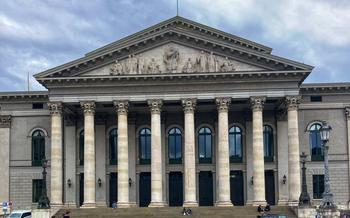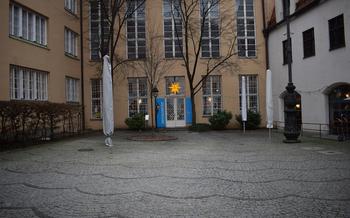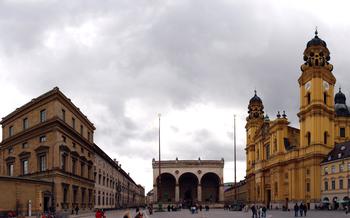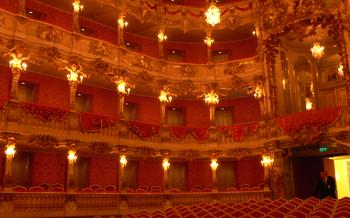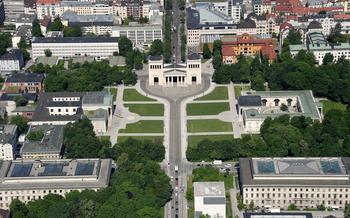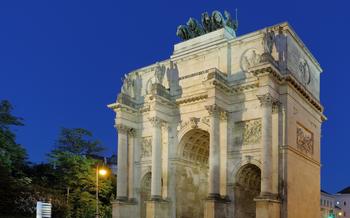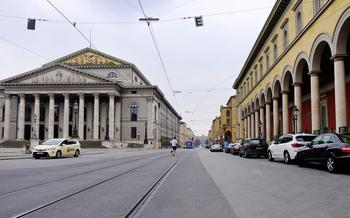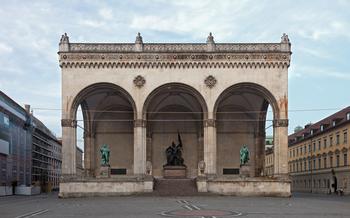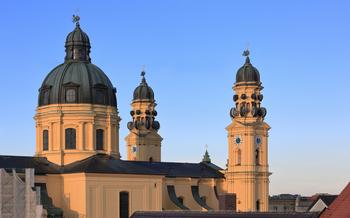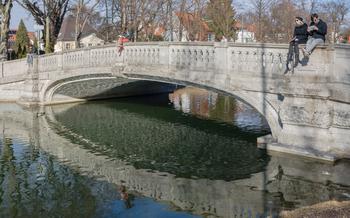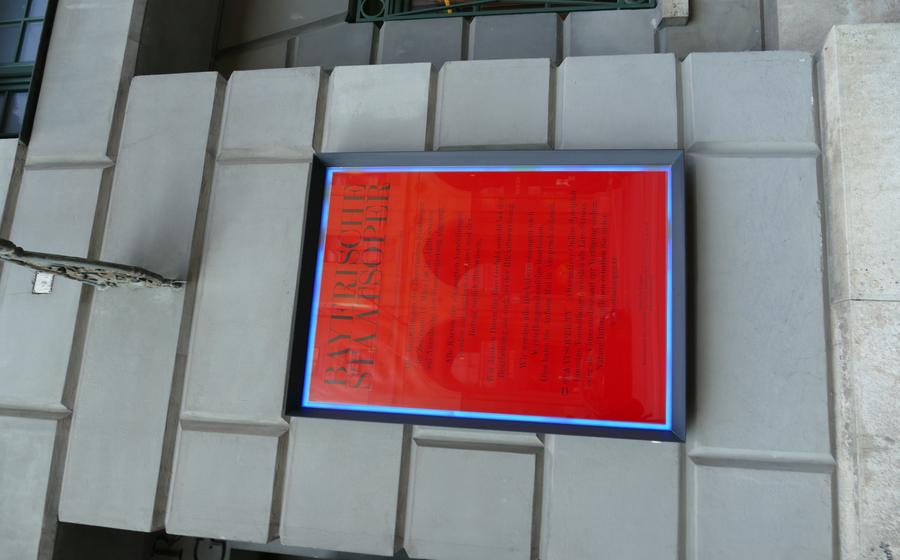
Bavarian State Opera
- The Bavarian State Opera: A World-Renowned Opera House
- Getting to the Bavarian State Opera
- Opera Performances
- Opera Etiquette
- Highlights of the Bavarian State Opera
- Opera Tours
- Opera for Everyone
- Dining Near the Bavarian State Opera
- Dress Code for the Bavarian State Opera
- The Opera Shop
- Opera Festivals in Munich
- Special Events at the Bavarian State Opera
- Architecture of the Bavarian State Opera
- Insider Tip
The Bavarian State Opera: A World-Renowned Opera House
History
The Bavarian State Opera traces its roots back to the 17th century when the Elector of Bavaria, Ferdinand Maria, established a court opera company. The company initially performed in various court theaters before moving to the newly built National Theater in 181In 1963, the company was renamed the Bavarian State Opera and became an independent organization.
Architecture
The Bavarian State Opera is housed in a magnificent neo-classical building designed by Karl von Fischer. The building features a grand foyer, an auditorium with over 2,000 seats, and a stage that is one of the largest in the world. The interior of the opera house is lavishly decorated with sculptures, paintings, and chandeliers.
Repertoire
The Bavarian State Opera's repertoire includes a wide range of operas from the Baroque era to the present day. The company is particularly renowned for its performances of Wagner's operas, which are conducted in the composer's own orchestra pit. The opera house also stages world premieres of new operas and regularly invites renowned soloists from around the world.
Prestige
The Bavarian State Opera is one of the most prestigious opera houses in the world. It is home to a world-class orchestra, renowned soloists, and a chorus that is considered to be one of the best in Europe. The opera house's productions are known for their stunning sets and costumes, as well as their innovative and thought-provoking interpretations of the classics.
Getting to the Bavarian State Opera
The Bavarian State Opera is conveniently located in the heart of Munich, making it easily accessible by various means of transportation.
Location
The opera house is situated on Max-Joseph-Platz, a prominent square in the city center. It is surrounded by other cultural landmarks, including the Residenz, the National Theater, and the Alte Pinakothek.
Public Transportation
Munich has an efficient public transportation system that connects all parts of the city. The closest U-Bahn (subway) station to the Bavarian State Opera is Odeonsplatz, which is served by lines U3, U4, and UFrom there, it is just a short walk to the opera house.
Parking
For those who prefer to drive, there are several parking garages located near the Bavarian State Opera. The most convenient option is the Tiefgarage Opernplatz, which is directly underneath the opera house.
Wheelchair Accessibility
The Bavarian State Opera is fully wheelchair accessible. There are ramps and elevators that provide access to all levels of the building, including the auditorium. Wheelchair-accessible seating is also available.
Opera Performances
The Bavarian State Opera offers a diverse repertoire of operas, ranging from classic works by Mozart and Verdi to contemporary masterpieces. The season runs from September to July, and there are usually around 300 performances each year. Ticket prices vary depending on the performance, but you can expect to pay anywhere from €15 to €250 for a seat.
If you're not sure what to wear to the opera, don't worry - there's no strict dress code. However, most people dress up for the occasion, so you might want to consider wearing something smart or formal. You can book tickets online, by phone, or in person at the box office.
Here are some tips for booking tickets:
- Book your tickets in advance, especially if you're planning to see a popular performance.
- Check the seating chart before you buy your tickets to make sure you're getting a good view of the stage.
- Ask about discounts for students, seniors, or groups.
- If you're not sure what to see, ask the box office staff for recommendations.
Opera Etiquette
Attending an opera performance at the Bavarian State Opera is a special occasion that requires a certain level of etiquette and decorum. Here are some guidelines to ensure a pleasant and respectful experience for everyone:
-
Arrive on time: Punctuality is essential when attending an opera performance. Aim to arrive at the theater at least 15-30 minutes before the start of the show to have enough time to find your seat and settle in comfortably.
-
Turn off phones and other electronic devices: To avoid any distractions or disruptions during the performance, it is imperative to turn off all electronic devices, including phones, tablets, and smartwatches.
-
Applauding: Applause is an important way to show your appreciation for the performance. Generally, it is customary to applaud at the end of each aria, after a particularly impressive performance, and at the end of the opera.
-
Encores: Encores are not always guaranteed, but if the audience demands one, it is customary to applaud enthusiastically. However, it is important to be respectful of the performers and not insist on an encore if they do not feel comfortable providing one.
Highlights of the Bavarian State Opera
The Bavarian State Opera is renowned for its world-class orchestra, which is considered one of the finest in the world. The orchestra is composed of highly skilled musicians who deliver exceptional performances that captivate audiences.
The opera house also features renowned soloists who grace the stage with their extraordinary vocal talents. These soloists are known for their powerful voices, impeccable technique, and ability to bring characters to life.
The Bavarian State Opera's productions are visually stunning, featuring elaborate sets and costumes that transport audiences to different worlds. The sets are meticulously designed to create realistic and immersive environments, while the costumes are carefully crafted to reflect the time period and style of each opera.
In addition to its traditional repertoire, the Bavarian State Opera is also known for its innovative productions that push the boundaries of opera. These productions often feature contemporary interpretations of classic works, as well as new and experimental operas that challenge audiences' expectations.
Opera Tours
The Bavarian State Opera offers a variety of guided and self-guided tours that allow visitors to explore the behind-the-scenes of this world-renowned opera house.
Guided Tours:
- Duration: 45-60 minutes
- Cost: €10 per person
- Availability: Daily, except during performances
- Highlights: Visit the auditorium, stage, rehearsal rooms, and costume department. Learn about the history and architecture of the opera house.
Self-Guided Tours:
- Cost: Free
- Availability: Daily, during opening hours
- Highlights: Explore the grand foyer, auditorium, and exhibitions at your own pace. Pick up a self-guided tour brochure from the information desk.
Highlights of the Tour:
- Auditorium: See the stunning auditorium, with its opulent décor and seating for over 2,000 people.
- Stage: Get a glimpse of the vast stage, where world-renowned opera productions come to life.
- Rehearsal Rooms: Visit the rehearsal rooms, where singers, musicians, and dancers prepare for their performances.
- Costume Department: See the intricate costumes that are created for each opera production.
Booking a Tour:
To book a guided tour, please contact the Bavarian State Opera's ticket office. Self-guided tours are available without prior booking.
Opera for Everyone
The Bavarian State Opera is committed to making opera accessible to everyone. Family-friendly performances are offered throughout the season, featuring shorter operas and interactive elements designed to engage young audiences. Student discounts are also available, making it possible for students to experience the magic of opera at a reduced cost.
For those on a budget, standing room tickets offer a more affordable way to see a performance. These tickets are available for purchase on the day of the performance and allow patrons to stand in the back of the auditorium.
The Bavarian State Opera also offers live broadcasts of select performances, allowing opera lovers around the world to enjoy the company's productions from the comfort of their own homes. These broadcasts are streamed live on the Bavarian State Opera's website and are available for purchase on DVD and Blu-ray.
With its commitment to accessibility, the Bavarian State Opera ensures that everyone can experience the joy and wonder of opera. Whether you're a seasoned opera lover or a newcomer to the art form, there's something for everyone at the Bavarian State Opera.
Dining Near the Bavarian State Opera
The Bavarian State Opera is surrounded by a variety of restaurants, cafes, and bars that cater to every taste and budget. Whether you are looking for a pre-opera dinner, a post-performance drink, or a quick bite to eat, you will find something to your liking within walking distance of the opera house.
For a special occasion, you might want to try one of the many Michelin-starred restaurants in the area. Zur Haxe is a traditional Bavarian restaurant that serves up hearty dishes such as pork knuckle and dumplings. Tantris is a modern European restaurant with a stunning view of the city. Atelier is a stylish restaurant that offers a tasting menu that changes seasonally.
If you are looking for something more casual, there are plenty of cafes and bars to choose from. Cafe am Beethovenplatz is a popular spot for coffee and cake. Hofbräuhaus is a traditional Bavarian beer hall that serves up hearty food and beer. Augustiner-Keller is a beer garden that is perfect for a summer evening.
No matter what your budget or taste, you are sure to find something to your liking near the Bavarian State Opera. So come hungry and thirsty, and enjoy a night out at the opera!
Recommendations:
- For a pre-opera dinner, try Zur Haxe for traditional Bavarian cuisine, Tantris for modern European cuisine, or Atelier for a tasting menu.
- For a post-performance drink, try Cafe am Beethovenplatz for coffee and cake, Hofbräuhaus for beer and hearty food, or Augustiner-Keller for a beer garden experience.
- For a quick bite to eat, try one of the many bakeries or cafes in the area.
Dress Code for the Bavarian State Opera
The dress code for the Bavarian State Opera is formal. Men are expected to wear a tuxedo or a dark suit with a tie. Women can wear a long evening gown, a cocktail dress, or a skirt or pantsuit with a dressy top. Avoid wearing casual clothing, such as jeans, t-shirts, or shorts.
For special events, such as opening night or galas, the dress code may be even more formal. Men may be required to wear white tie and tails, while women may be expected to wear full-length gowns.
If you are unsure about what to wear, it is always best to err on the side of caution and dress more formally. You can also check the opera's website or call the box office for more information.
The Opera Shop
Located in the heart of the Bavarian State Opera, the Opera Shop is a must-visit for opera enthusiasts and souvenir hunters alike. Step through its doors and be transported into a world of exquisite merchandise, where you can find everything from opera-themed souvenirs to unique gifts and books.
Browse through the shelves and discover a treasure trove of opera-related items, including CDs, DVDs, and books featuring the greatest operas and performances. For those who prefer a tangible memento of their visit, the shop offers a wide range of souvenirs, such as postcards, magnets, and keychains adorned with the iconic Bavarian State Opera logo.
If you're looking for a special gift for a fellow opera lover, the Opera Shop has you covered. Choose from a selection of elegant jewelry, scarves, and accessories inspired by the world of opera. Or, opt for a gift set that includes a variety of opera-themed items, beautifully packaged and ready to impress.
For those who want to delve deeper into the world of opera, the Opera Shop offers a wide range of books, including opera librettos, biographies of famous composers and singers, and in-depth analyses of opera's greatest works. Whether you're a seasoned opera enthusiast or just starting to explore this captivating art form, you're sure to find something to your liking at the Opera Shop.
Opera Festivals in Munich
Munich is renowned for its vibrant opera scene, and the city hosts two major opera festivals each year: the Munich Opera Festival and the International Summer Festival.
The Munich Opera Festival, held in June and July, showcases the Bavarian State Opera's world-class productions in a series of performances. The festival features a diverse repertoire, ranging from classic operas to contemporary works, and attracts opera lovers from around the globe.
The International Summer Festival, held in August, presents a variety of opera, ballet, and concert performances by renowned artists from around the world. The festival offers a unique opportunity to experience different artistic traditions and styles, and to discover new and exciting works.
Tickets for both festivals go on sale several months in advance and can be purchased online or through the Bavarian State Opera box office. Prices vary depending on the performance and seat location, but there are often special discounts available for students and seniors.
Attending an opera festival in Munich is a truly unforgettable experience. The city's beautiful theaters, world-class performances, and vibrant atmosphere create a magical setting for enjoying the art of opera.
Special Events at the Bavarian State Opera
In addition to its regular opera performances, the Bavarian State Opera also hosts a variety of special events throughout the year. These events include concerts, recitals, ballet performances, and other special events.
Concerts: The Bavarian State Opera Orchestra is one of the world's leading orchestras, and they perform a variety of concerts throughout the year, including symphonic concerts, chamber concerts, and solo recitals.
Recitals: The Bavarian State Opera also hosts a number of recitals by world-renowned singers and instrumentalists. These recitals are a great opportunity to see some of the world's best musicians up close and personal.
Ballet performances: The Bavarian State Ballet is one of the world's leading ballet companies, and they perform a variety of ballets throughout the year, including classical ballets, contemporary ballets, and world premieres.
Special events: The Bavarian State Opera also hosts a number of special events throughout the year, such as film screenings, lectures, and galas. These events are a great way to learn more about opera and meet other opera lovers.
Architecture of the Bavarian State Opera
The Bavarian State Opera is a stunning example of Neo-classical architecture. Its grand facade features a row of Corinthian columns, a triangular pediment, and a statue of Apollo, the Greek god of music. The interior of the opera house is equally impressive, with a spacious grand foyer, a horseshoe-shaped auditorium, and elaborate decorations. The auditorium is decorated with gold leaf, frescoes, and sculptures, and the ceiling features a large chandelier. The stage is framed by a proscenium arch and a curtain of red velvet. The Bavarian State Opera is a truly magnificent building that is sure to impress visitors from all over the world. It is one of the most beautiful and well-preserved opera houses in Europe, and it is a testament to the city's rich cultural heritage.
Insider Tip
To make the most of your experience at the Bavarian State Opera, here are a few insider tips:
-
Book tickets in advance. The Bavarian State Opera is a popular destination, so it's advisable to book your tickets well in advance, especially if you're interested in seeing a popular production.
-
Arrive early. The Bavarian State Opera has a strict punctuality policy, so it's important to arrive at the theater at least 30 minutes before the performance begins. This will give you enough time to find your seat, settle in, and enjoy the pre-show atmosphere.
-
Dress appropriately. The Bavarian State Opera has a formal dress code, so it's important to dress accordingly. For men, a tuxedo or dark suit is appropriate. For women, a long evening gown or cocktail dress is suitable.
-
Enjoy the experience! The Bavarian State Opera is a world-renowned opera house, so sit back, relax, and enjoy the performance. The acoustics are superb, the sets and costumes are stunning, and the performances are world-class.
